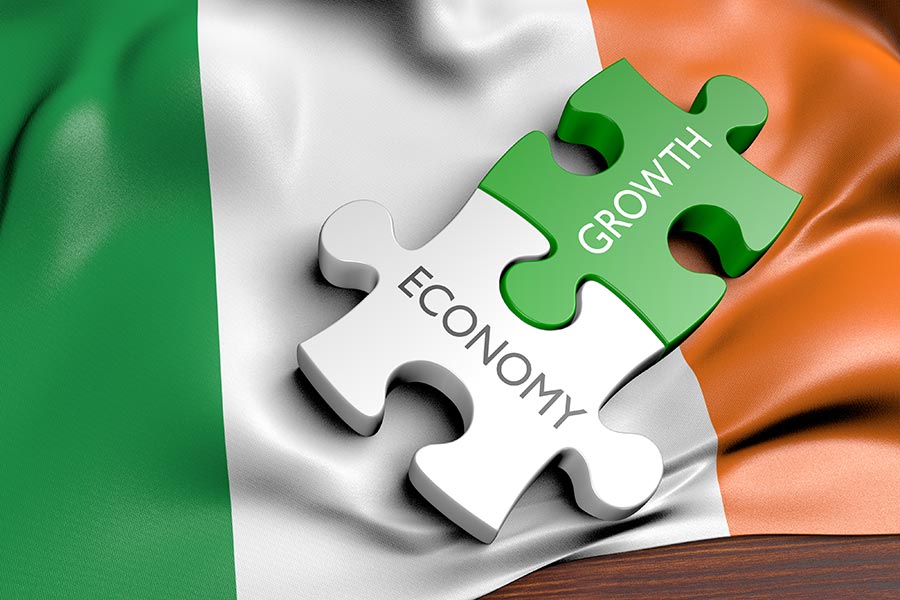Irish consumer confidence improved slightly in August as economic uncertainty declined following the agreement of the EU-US trade deal.
While the 15% tariff on EU goods entering the US will weigh on the outlook for economic activity and employment, Irish consumers were marginally more positive due to the certainty provided and the fact that the deal falls short of worst-case scenarios.
However, rising grocery prices and back-to-school costs contributed to a further weakening in sentiment around household finances.
The Credit Union Consumer Sentiment Survey in partnership with Core Research returned an index reading of 61.1 in August, up marginally from 59.1 in July.
The reading indicates that a little over half of the losses seen in the survey between June and July have been recovered, although it remains below the 64.9 average for the first eight months of 2025 and some distance below the 83.8 average for the nearly 30-year history of the survey.
The results suggests that Irish consumers are now more nervous about the economic outlook and more negative about their own personal finances than would typically be the case.
The slight improvement in Irish consumer sentiment in August reflects the partly offsetting impact of contrasting movements in the five main element of the Credit Union Consumer Sentiment Survey.
Both ‘macro’ elements of the Irish consumer sentiment survey improved in August, which might be explained by the lower than threatened headline tariff figure.
Preliminary official estimates suggest tariff deal will shave about 1.5 percentage points off growth over five years, manageable in an Irish economy that might expect to grow a cumulative 10 to 15 per cent over a five-year timeframe.
Austin Hughes, the economist and report author, also suggested that consumers may expect to hear fewer "apocalyptic pronouncements on the economic outlook" now that the deal has been done and that they had been encouraged by the €275bn National Development Plan.
That said, the latest survey reading, which shows thinking on the twelve-month outlook for the economy well below levels of a year ago or the average thus far in 2025, implies Irish consumers expect the Irish economy to be materially weaker in a year’s time than it is today.
Irish consumer thinking on job prospects improved broadly in line with sentiment month-on-month and similarly remains below the long-term average, again reflecting the diminished threat of US tariffs.
Howevere, there was a notably larger than expected rise in monthly unemployment, associated with revisions stemming from a softer labour force survey for the second quarter.
The jobless rate increased to 4.9% in July from 4.6% in June. While this remains a relatively low figure, it is materially higher than earlier estimates that put unemployment at 4% in June.
Negativity around household finances increases as food price inflation picked up to 4.6%, its fastest pace since the end of 2023, adding to prices that are already 14% above the EU average.
Many Irish consumers continue to feel their personal financial circumstances continue to worsen when it had been widely expected that this year would see them clearly better off, Hughes said.
However, surprisingly, the August survey saw a clear improvement in Irish consumers’ assessment of the current buying climate. The current picture painted by the survey is one of constrained rather than collapsing Irish consumer spending.
Two-thirds of consumers (66%) said they are now spending more on groceries than a year ago and just one in seven consumers (14%) saying they are spending less.
A significant majority of consumers say they now have higher outlays on other household bills than a year ago (61% spending more against 10% spending less)
Elsewhere, US consumer sentiment fell for the first time since March, consumer confidence in the eurozone slipped to its lowest level since April, and UK consumer confidence improved modestly in August.

"While it is encouraging that consumer sentiment has edged higher in August, the main message of the survey is that elevated living costs remain a key issue for many Irish households," said David Malone, CEO of the Irish League of Credit Unions.
"Consumers continue to turn to their local credit union for guidance and support as they manage the ups and downs of their personal finances."
(Pic: Getty Images)











